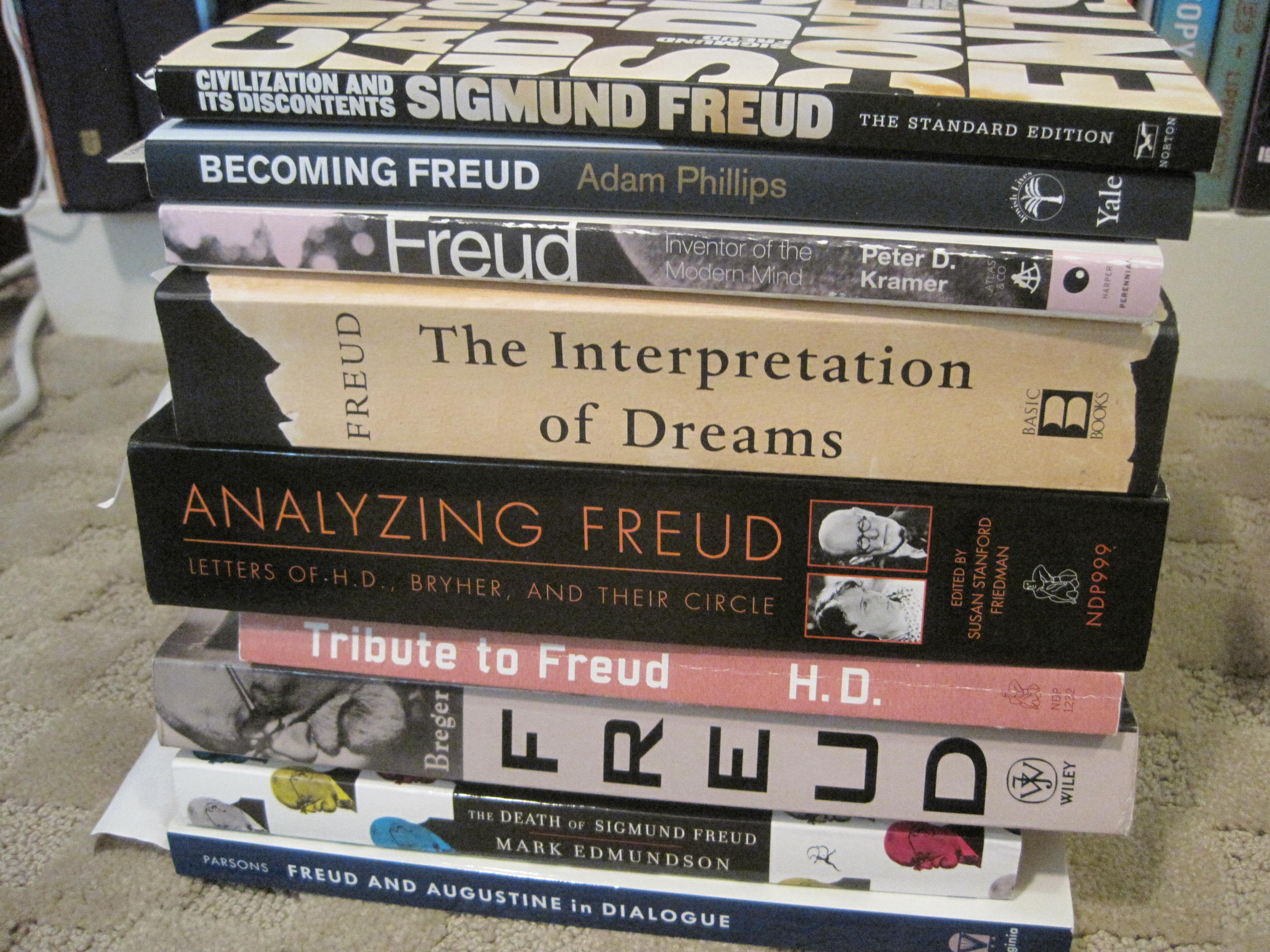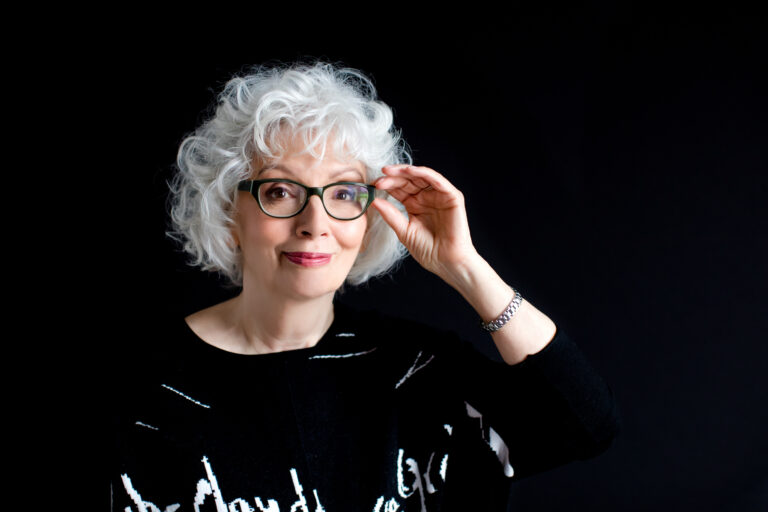Here I am on my new WordPress website! Welcome!
Would you be surprised to hear that I’m missing the familiar Blogger way of making a post? This is indeed nerve wracking. My words keep disappearing. But I am going to forge forward because this Post is the Official First Freud Friday Post of the month! Or should it be the Official Freud First Friday Post? Let me know your preference.
I’m feeling some pressure because in the last decade, much to my surprise, I have become quite fond of Freud and his creation psychoanalysis. I want my introduction of Sigmund to open your eyes to his genius. But this may not be easy for a number of reasons.
There are many problems translating Freud, according to translator Helena Ragg-Kirkby, even though for the most part Freud’s German is delightfully free of pomposity and fancy jargon. Helena writes that there are words that “work” in German, that don’t work in English. She especially doesn’t think the translations of ego, super-ego, and id work.
“Geist” is a word Helena says she translated as ‘spirit’ while knowing that her translation doesn’t begin to cover all the subtleties of the German word which encompasses spirit, mind, intellect, intelligence, mental attitude, imagination, atmosphere to name just a few.
Please remember as we proceed on this exploration of Freud, that my words are my translation of what I’ve read. I’ve encountered writers who disparage Freud and writers who praise him.
William B. Parsons writes that he believes that many translators have missed the complexity of Freud’s views – especially on spirituality. I wrote to Parsons and he graciously responded, saying that he is writing another book on Freud. I’m fascinated with how you would do this! Hasn’t everything been written on Freud who died in 1939?
This brief introduction is to whet your appetite for more in the weeks and months ahead. If you have questions or comments, please email me or use the new comment feature!
Thanks for exploring the mystery – Nicky Mendenhall







9 comments
This is helpful, because I know nothing about Freud. When I read how Giest may be translated, it reminded me of the world ‘logos’ in ancient Greek meaning understanding. I’m looking forward to seeing your Friday posts.
Hi Jackie, I wrote a long reply talking about how happy I was to hear from you and how I remembered reading a book explaining what Jesus really meant in his language. Oh, I waxed poetic & it all disappeared. So I am trying again, this time on my phone. Look forward to hearing from you again.
“First Official Freud Friday Post!”
I’m looking forward to reading your take Freud and his methods!
Thanks for your vote Anna!
It will be fun exploring Freud – as long as we keep in mind that my opinion on his genius – is just one among many! Keep me posted as to how you respond to my views!
Appreciate your reading and commenting very much!
While I’ve always thought about what gets lost in translation of literary works, I’ve never considered how translation affects meaning in academic work. Thanks for this! Very interesting and looking forward to more about Freud in future posts!
Thank you Diane for reading and for letting me know how the idea of translating Freud sparked new thoughts for you. Also thanks for indicating you are interested in future posts! I was very happy to hear that!
Hi Nicky!
So glad to be connected on Instagram. ?
I do have a question, and maybe you already addressed it, and I missed it, but I was wondering why Freud as opposed to Jung?
Most of my friends with whom I converse on a deeper level are Jungian. I also have been influenced by Jung when it comes to dreamwork and creative expression. You are the first person I’ve heard speak about Freud and his approach to analysis. So you really piqued my interest!
As I said, maybe you’ve already written something about that, if so, point me in that direction. But if not, I’d love to hear more about Freud’s approach to analysis vs Jung’s.
Blessings,
Stacy
Hi Stacy,
Thanks for your comment and question. I agree it is good to be connected on Instagram – I was so happy to “see” you there! Your art work always speaks to me.
I have not addressed the question of why Freud and not Jung so thanks for giving me the opportunity. That said, I’m wondering where to begin! The short answer is that when I asked for depth therapy, the referral I received was to a woman who practiced Freudian psychoanalysis. Her style was SO different from what I was used to that I was intrigued.
The more sessions I attended, the more intrigued I became. In addition, I started feeling less anxious and my new marriage was better because I was different.
I think the short answer to the difference between Freud and Jung is that Jung was more open to the spiritual aspect of life. I feel puzzled, given my long time interest and devotion to the spiritual, that I ended up with Freud.
I hope you continue to read future blogs and see what you think about Freud!Thanks again for reading and asking a good question.
Best to you,
Nicky I
Thank you, Nicky! Looking forward to learning more about Freud as you unpack your experience here!
Comments are closed.